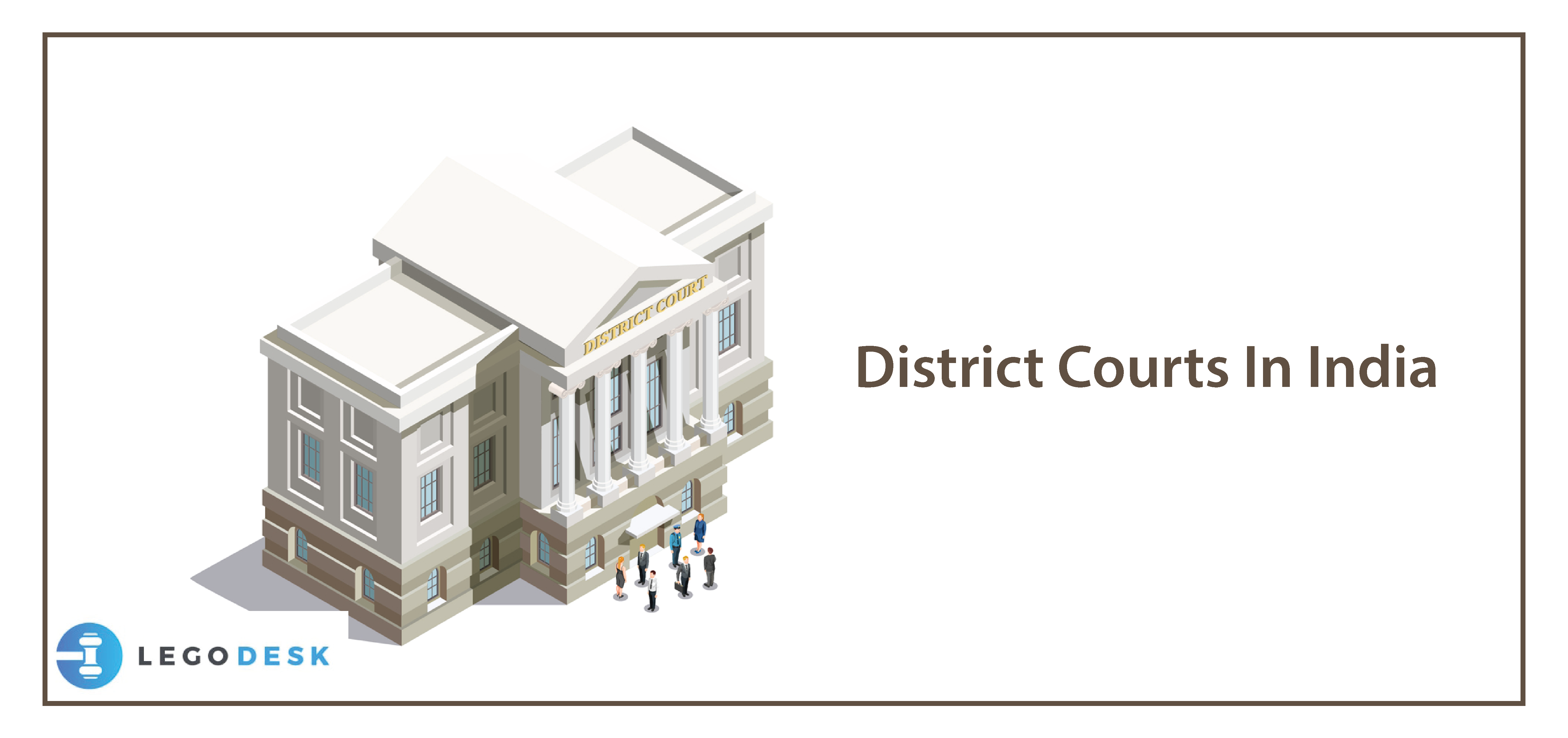Introduction
All of us must have heard the word “trial”, and as for law students concern, the art of trial is something which everyone would be interested to learn. All trial commences at district Court. Except for few cases, every case starts with the district court first, and the actual trial regarding factual circumstances is seen in the district or session courts, that is why this type of subordinate courts plays a very vital role in delivering justice to people.
Every district have a district court, and in some situation, one or more districts together have a single district court and it depends on certain factors like the number of cases dealt, or the population distribution in that particular district. Every court at the district level is Chaired by a district judge. Their main objective is to administer justice at the local level. These Subordinates courts are under administrative and judicial control of Apex judicial body of the State, i.e., the High Court. There is a total of 672 District courts in India at present. Also, the ruling of the District Court is under the subject of the appellate jurisdiction of the High court.
Hierarchy of the courts at District level
There are many other different types of courts which are subordinate to the court of District and Sessions Judge. There is a three-tier system of courts below the district court. If we talk about the civil side, the lowest level is the court of Civil Judge (Junior Division). While on the other side, i.e., on the criminal side, the lowest court is named as the Judicial Magistrate. Civil Judge (Junior Division) dealt and decided the matter of civil cases of small pecuniary stake. While again, on other aspects a Judicial Magistrates decide the cases which are criminal and are punishable with five years of imprisonment.
In the above paragraph, we have discussed the highest and lowest court at the district level but when it comes to the middle of the hierarchy there is a court named as the Court of Civil Judge (Senior Division) for civil matters specifically and the Court of the Chief Judicial Magistrate on the others side, i.e., Criminal side, for the criminal matters specifically. A Civil Judge (senior division) can decide any civil cases which are in the form of certain kinds of valuation. Along with that, there are also many of the additional courts of Additional Civil Judge (senior division). And there are no such kinds of differences between this additional courts of Additional Civil Judge (senior division) and the principal court of Civil Judge (Senior Division). The Chief Judicial Magistrate can try cases which are in the form of criminal activity, means where punishment shall be granted with the imprisonment for a term up to seven years. There are numbers of additional courts of Additional Chief Judicial Magistrates. At the supreme level, there might be one or more courts of additional district and sessions judge with the power (judicial) as that of the District (for civil case) and Sessions (for criminal matters) judge.
Composition of District Courts
The district court is considered as the principal court of original civil jurisdiction besides state Apex court, i.e., High Court and which gets their power and jurisdiction (for civil matters specifically) from the code of civil procedure (C.P.C.). And on the other side, the district court is also named as the court of sessions when it exercises its jurisdiction on criminal matters and gets their power from the Code of Criminal procedure (Cr.P.C).
So, the composition of District court is as follow-
- District Judges (for civil matters as well as criminal matters) – appointed by the governor of the state with the advice of state chief justice.
- Additional District Judges.
- Assistant District judges. (They are many in numbers, and the post are not decided actually as they both are appointed after seeing the workload of that specific district)
Conclusions-
As we discussed above, so there are 3 types of an important category of the judges found in the district court where the district court has the supreme authority over others. A district court is always a session court (for criminal matters), and their judges are regarded as the district judges. The district judge is sometimes also named as “metropolitan session judge” when they chaired over a district court in a city which is designated as “metropolitan city” by the state.


